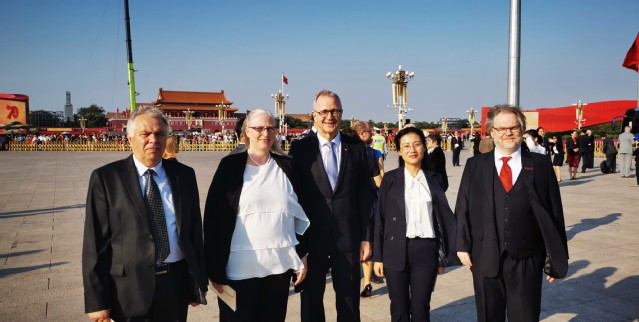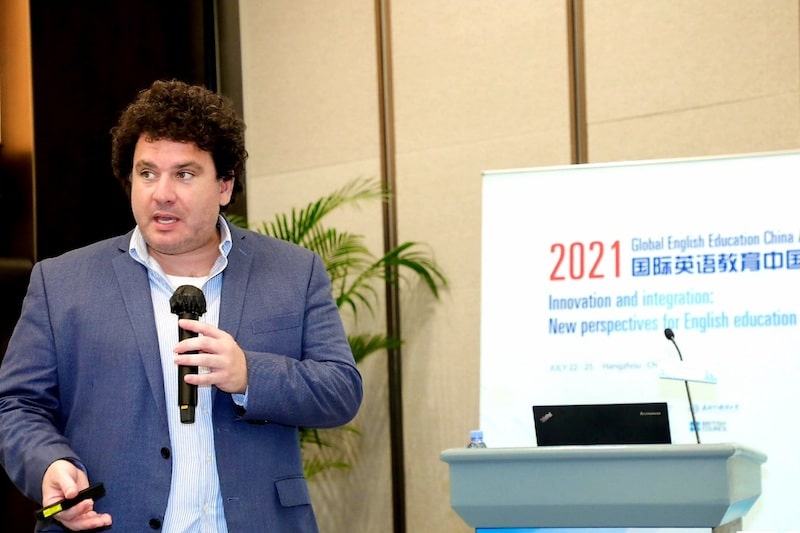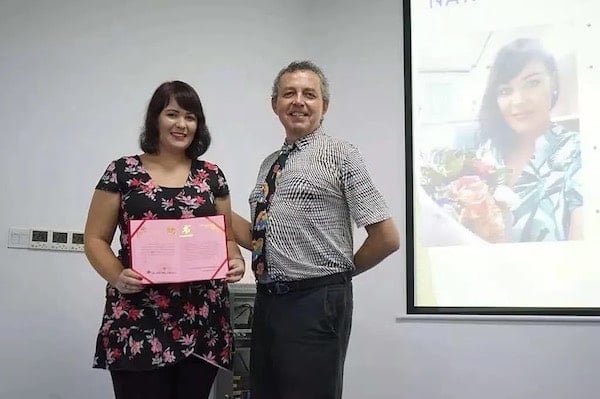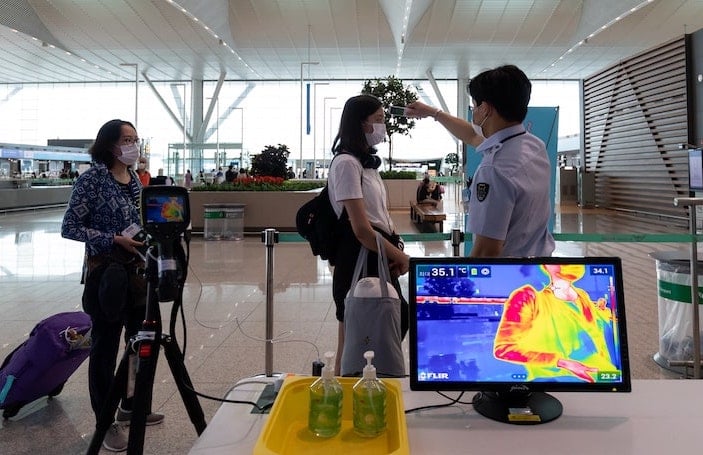![]() Updated 2019-10-15
Updated 2019-10-15


On the afternoon of October 14, 2019, a special lecture was held in the library of Nanjing University of Science and Technology. The keynote speaker of the lecture was the director of the Herbert Gleiter Institute of Nanoscience of NJUST – Professor Harald Fuchs, who has recently won the 2019 Chinese Government Friendship Award.
Harald Fuchs is the academician of German Academy of Sciences and German Academy of Engineering. He is also a world-renowned scholar on Surface Chemistry and Nanobiology. His major research fields include nanoscience and nanotechnology. He has made tremendous contributions in scanning probe technology, self-assembled nano-materials, nano-biological systems and etc.
In 1996, Fuchs, the director at the Institute of Physics at Münster University in Germany, was invited to China for the Fourth International Conference on Nanotechnology held in Beijing.

In Beijing
Harald Fuchs’ visit to China became a bridge for cooperation of nano-research between China and Germany. In 2000, the German State of North Rhine-Westphalia signed a cooperation agreement with the Chinese Academy of Sciences to support exchanges and cooperation among researchers in academic researches and seminars within the next five years. From then on, Chinese research groups engaged in surface physics and surface chemistry have constantly sent PHD candidates and visiting scholars to Harald Fuchs’ research group for postdoctoral researches and exchange visits.
In 2012, invited by his PhD supervisor – Professor Herbert Gleiter, Harald Fuchs joined the Herbert Gleiter Institute of Nanoscience of NJUST as Principal Investigator and established his research team on. Nanostructuring & Self-organized Devices.

Chen Qian, vice president of NJUST, said: “When nanomaterials and nanoscience became hot topics, the subject of materials science has also changed a lot. So from this point, the university wanted to give full play to the development of materials science, and led the world in this field. That’s when we decided to set up the Herbert Gleiter Institute of Nanoscience.”
Since the establishment of the Herbert Gleiter Institute of Nanoscience, Harald Fuchs spends about three months each year in Nanjing. Compared with other cities in China, Fuchs found Nanjing very attractive.
In 2016, as one of the sponsors, he established the Research Center of functional nanomaterials at the Herbert Gleiter Institute of Nanoscience in collaboration with research institutions in Australia and Germany. He also designed an in-situ ultra-high vacuum photoemission electron microscopy and ultra low-temperature scanning tunneling microscopy system when the institute was first established. This was the first one in China.
“It introduces a very good scientific research environment, a kind of cultural atmosphere. I think for a university, especially materials science, it is supposed to do basic research,” said Chen Qian, vice president of NJUST, “Basic research requires a long-term steady research environment rather than pushing researchers for quick results. Therefore, a kind of cultural atmosphere is formed for scholars to do research wholeheartedly.”
The seemingly fruitless training model of the institute has made tremendous achievements in the materials science field. Since he became the director of the Herbert Gleiter Institute of Nanoscience of NJUST in 2017, he has endeavoured to make policies and guidelines for the development of the Institute and use its international influence to attract more talents for the Institute. By the end of 2018, HGI has published more than 300 SCI papers, within which, more than 40 papers were published on high-impacted journals, including Journal of the American Chemical Society、Nano Today、Advanced Materials、Advanced Functional Materials、Advanced Energy Materials and Nature Communications.
Conducting basic research has always been the focus of Professor Fuchs. On January 25, 2019, Chinese Premier Li Keqiang had a discussion with some foreign experts working in China. Harald Fuchs, as one of the speakers, advised the Ministry of Science and Technology about basic scientific research.
On September 30th, 2019, Harald Fuchs was awarded the Chinese Government Friendship Award at the Great Hall of the People in Beijing. The award is the highest recognition of foreign experts given by Chinese government. Fuchs was then invited to the celebration of the 70th Anniversary of the Founding of the People’s Republic of China the next day to watch the military parade and the mass pageant.
As the director of the Herbert Gleiter Institute of Nanoscience, Professor Fuchs has always focused on nurturing young researchers of the next generation. The young generation, he believes, is the future of the Herbert Gleiter Institute of Nanoscience, of NJUST and of the entire materials science subject.

(Source: Nanjing University of Science and Technology)

Related Articles



